Obstaja veliko zloveščih znakov, ki kažejo, da morate obiskati gastroenterologa, v tej objavi pa boste izvedeli, na katere simptome morate biti pozorni. Gastroenterolog je zdravstveni delavec in zdravnik, ki je bil podvržen strogemu in obsežnemu usposabljanju, da bi se naučil obvladovati, zdraviti in ozdraviti zdravstvene okoliščine, povezane s prebavili. Ta področja vključujejo črevesje, želodec, jetra, požiralnik in danko.
S takšnim nazivom, ki zahteva več kot 5 let usposabljanja iz "interne medicine" in "gastroenterologije" (po končani medicinski fakulteti); Zdravniki GI zagotavljajo izjemno oskrbo in zdravljenje in so običajno uspešnejši od zdravnikov, ko gre za diagnozo in zdravljenje gastrointestinalnih zapletov.
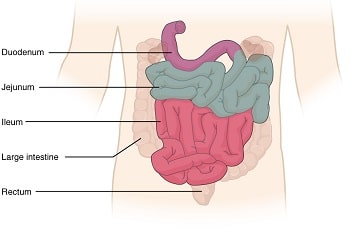
Vsebina
Gastroenterologi prejmejo specializirano usposabljanje na področju "endoskopije", ki je praksa uporabe majhne in ozke, a fleksibilne "cevke" z vgrajeno kamero, ki se bo uporabljala za krmarjenje po prebavnem traktu med postopki, operacijami ali diagnostičnimi preiskavami, da se ugotovi, ali obstajajo. bolezni ali izrastki.
Ko gre za zdravstvene težave, povezane s prebavili, bo iskanje zdravljenja pri gastroenterologu zagotovilo, da boste prejeli najučinkovitejše možno zdravljenje saj boste prejeli zdravljenje pri zdravniku, ki ima edinstveno in poglobljeno izkušnjo usposabljanja, ki vam bo omogočila visokokakovostno in »celovito« zdravljenje vseh zdravstvenih zapletov, povezanih z GI, s katerimi se morda srečate.
Z uporabo študij je statistično dokazano, da gastroenterologi izvajajo kolonoskopijo in celovito oskrbo prebavil z večjo stopnjo uspešnosti v primerjavi z zdravljenjem, ki ga izvajajo drugi tipi zdravnikov. Za vas to pomeni, da boste prejeli zdravljenje, ki bo natančno odkrilo prisotnost raka ali polipov, hkrati pa zmanjšalo možnost zdravstvenih zapletov, ki bi nastali zaradi zdravljenja (pacienti, zdravljeni z GI lahko pričakujejo tudi, da bodo preživeli manj časa v bolnišnici).
V tem zapisu bomo obravnavali »15 najboljših opozorilnih znakov, da morate obiskati gastroenterologa«, ki vam bodo pomagali ugotoviti, ali imate simptome zdravstvenega zapleta, ki bi zahteval pozornost in zdravljenje s strani GI. zdravnik.
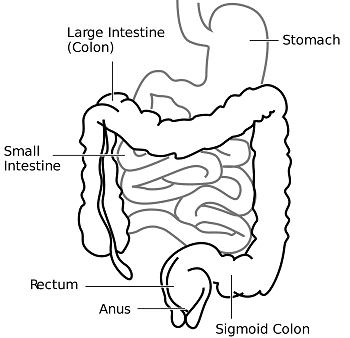
Ko prvič začnete prepoznavati novonastale »bolečine« ali kakršne koli znake/simptome, ki izvirajo iz predela prebavnega trakta, kot so zgaga, bolečine v trebuhu, driska ali zaprtje, se morda sprašujete, ali bi morali obiskati rednega zdravnika, internist ali gastroenterolog (specialist za prebavo). Koga se odločite za diagnosticiranje vaših bolezni na začetku njihovega nastanka, se lahko razlikuje glede na številne dejavnike.
V nekaterih situacijah je pravilna izbira obiska zdravnika ali gastroenterologa morda nejasna, toda spodaj vam bomo pomagali razumeti simptome, da boste pozorni na težave s prebavilom, ki jih je treba diagnosticirati in zdraviti pri zdravniku GI.
Če šele zdaj prvič občutite simptome ali bolečine v prebavnem predelu, je lahko prvi korak, da poiščete nasvet svojega primarnega zdravnika, kot je zdravnik primarne zdravstvene oskrbe ali internist.
Upajmo, da bo to zdravnik, s katerim ste sčasoma vzpostavili odnos, saj bi imel popoln dostop do vaše zdravstvene anamneze in zgodovine zdravljenja, ki jo je mogoče pregledati, da bi ugotovili, kaj povzroča simptome, ki jih doživljate.
Ko se boste srečali s svojim zdravnikom in mu/ji predstavili svoje simptome, bo opravljen fizični pregled, da se ugotovi, ali je treba opraviti teste ali ne. Ko zdravnik opravi fizični pregled in ima dobro predstavo o tem, kaj vam povzroča nenadne bolečine v prebavilih, lahko ugotovi, da mora zdravljenje zagotoviti specialist, ki lahko zagotovi učinkovito okrevanje. V tem primeru bi bil »specialist« gastroenterolog.
Tarugu, izkušen in nagrajeni gastroenterolog iz južne Floride priporoča, da posamezniki, ki nenehno doživljajo sporadične ali ponavljajoče se izbruhe v predhodno diagnosticiranih stanjih (kot so ulcerozni kolitis, Crohnova bolezen ali IBS), nemudoma poiščejo zdravljenje pri gastroenterologu, da se izognejo nadaljnji rasti ali zapletom močan> zrelost.
Med zdravljenjem pri gastroenterologu bo on/ona vašega zdravnika obvestil o stanju vašega stanja in napredka. Te posodobitve bodo vašemu zdravniku primarne zdravstvene oskrbe pomagale dobro razumeti vaš status, kar vam bo pomagalo, da vam zagotovi ustrezno oskrbo na seznamu kot podporo po okrevanju. Nekaj drugih bolezni prebavil, ki jih zdravijo GI zdravniki, so bolezni, ki se nahajajo v območju trebušne slinavke ali jeter.
Če vaš primarni zdravnik sumi, da se na teh območjih pojavljajo težave, je varno domnevati, da vas bodo napotili k lokalnemu gastroenterologu za poglobljeno diagnozo in tako lahko pripravite načrt zdravljenja.
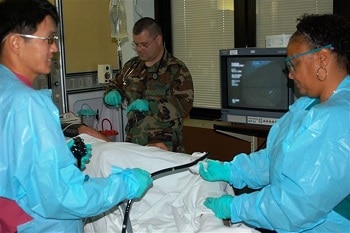
Vsak od njih je edinstven znak potencialno resnih stanj, ki jih ne bi smeli zavreči kot »nepomembne«, saj lahko vsak od zgoraj naštetih simptomov povzroči veliko slabše znake zapletov, če se ne diagnosticirajo in ne zdravijo »zgodaj«.
Spodaj bomo obravnavali, kaj bi lahko pomenil vsak od teh simptomov in zakaj je pomembno, da čim prej poiščete navodila in zdravljenje pri zdravniku GI.
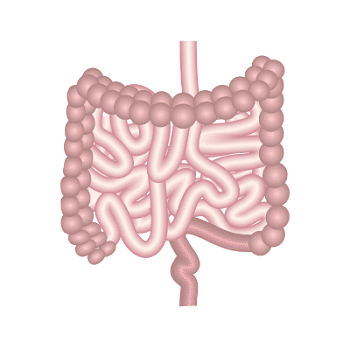
Ocenjuje se, da skupno 60 milijonov posameznikov v ZDA doživlja in trpi za zgago v povprečju vsaj enkrat na mesec, po ocenah pa 15 milijonov ljudi trpi zaradi tega stanja »dnevno«. Simptomi kisle prebavne motnje (zgaga) so najbolj značilni za nosečnice in starejše osebe.
Obstaja stanje, imenovano "gastroezofagealni refluks", ki je telesno stanje, ki povzroči, da želodčna kislina teče nazaj in se vrne v požiralnik. Zaradi tega bodo nekateri posamezniki na žalost imeli izkušnjo simptomov, ki izhajajo iz tega, ko bo ta proces potekal (ki je lahko vsak dan, teden ali mesec).
Eden od prvih znakov obiska gastroenterologa zaradi zgage je izkušnja vročega nelagodja, ki prihaja iz predela za prsnico. Ta občutek se nagiba k prehajanju v predel grla in vratu, zato kakršno koli nelagodje na tem področju bi moralo biti opozorilni znak da morate obiskati gastroenterologa za diagnozo/zdravljenje.
Drug opozorilni znak refluksa kisline je "kisli" ali "grenak" okus v zadnjem delu grla, saj je to okus želodčne kisline. Ker lahko simptomi vročega tlaka pri zgagi trajajo tudi do nekaj ur (in se poslabšajo po jedi), bi vas moralo takšno nenehno vznemirjenje na tem področju spodbuditi, da takoj poiščete diagnostično preiskavo pri zdravniku GI.
Če doživite takšne simptome 2-krat ali večkrat na teden ali občutite izgubo teže, izgubo krvi ali sprijemanje hrane, je morda zgaga zelo resna. Če se pojavijo takšni simptomi, imate morda stanje, znano kot "gastroezofagealna refluksna bolezen (ali "GERB za injekcijo").
Preden lahko začnete razumeti točne vzroke za GERB ali gastroezofagealno refluksno bolezen, morate najprej razumeti, kaj so vzroki za zgago. Večina posameznikov bo občutila vznemirjenost zgage v primeru, da pride sluznica požiralnika v stik z želodčnimi tekočinami za daljše časovno obdobje .
Te želodčne tekočine so sestavljene iz nekaj različnih materialov, vključno s prebavnimi encimi in kislino. Ker želodčna kislina ostane v stiku s sluznico požiralnika, lahko pride do poškodbe požiralnika, ki povzroči neprijeten, pekoč in boleč občutek.
Medtem ko mišična zaklopka proti dnu požiralnika (znana kot »spodnji ezofagealni sfinkter« ali »LES«) zadržuje kislino v želodcu in stran od požiralnika (če deluje pravilno), to ne velja, če ima posameznik bodisi »gastroezofagealna refluksna bolezen« ali »GERD«, saj se »LES« nagiba k rednemu sproščanju, kar omogoča refluks želodčne kisline nazaj v požiralnik.
Takšen simptom mora čim prej zdraviti zdravnik GI, da se prepreči razvoj nadaljnjih zapletov.
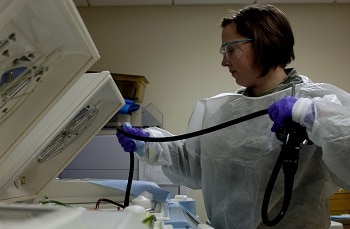
Ob obisku zdravnika GI bo na podlagi rezultatov diagnostike oblikovan načrt zdravljenja/okrevanja.
Če se zaradi zgage samozdravite več kot dvakrat na teden, je že to znak, da se morate zdraviti pri gastroenterologu. Stanja, ki jih izkušen GI ne zdravi, lahko vodijo do resnejših zapletov.
Ali imate težave s požiranjem hrane? Imate težave pri jemanju tekočin? Ali imate občasno ali stalno otekanje v predelu grla? Če je tako, je to morda opozorilni znak manjšega ali resnega stanja, zaradi katerega bi morali poiskati gastroenterologa za diagnozo. "Vsaka vrsta bolečine ali vznemirjenosti, ki jo povzroča pitna voda, je lahko opozorilni znak resne težave s prebavilom," je dejal dr. Vikram Tarugu, izkušeni, certificiran in nagrajen gastroenterolog.
Drugi opozorilni znaki, ki jih bo moral vedeti gastroenterolog, so, ali vaše težave s požiranjem spremljajo kolcanje, hripavost v grlu, pogost kašelj ali občutek polnosti po zaužitju zelo majhnega obroka hrane. Če se pojavi kateri koli od teh potencialno nevarnih opozorilnih znakov, je verjetno vzrok za rak požiralnika. Če opazite katerega od teh opozorilnih znakov, ne oklevajte poiskati svetovalca od svojega primarnega zdravnika ali gastroenterologa, če že imate razmerje z njim. Čutite nenavaden vonj zaradi prehajanja plina? To lahko bi bilo opozorilni znak za nalezljive parazite
Presenetljivo je, da v povprečju tipična oseba dnevno izloči skoraj 2 litra plina, razen če se v prebavnem traktu pojavijo nepravilnosti. Eden od opozorilnih znakov, na katerega morate biti pozorni, je, če občutite bolečino ali nelagodje v predelu trebuha med odvajanjem plinov ali med odvajanjem črevesja.
Poleg tega, če so odvajanje črevesja in plini začeli imeti nenavadno grozljiv vonj, je to lahko znak, da imate giardijo, ki je parazit, ki draži in okuži črevesje. Ker se giardia lahko poslabša, če se ne zdravi, takšnega opozorilnega znaka ne smete spregledati.
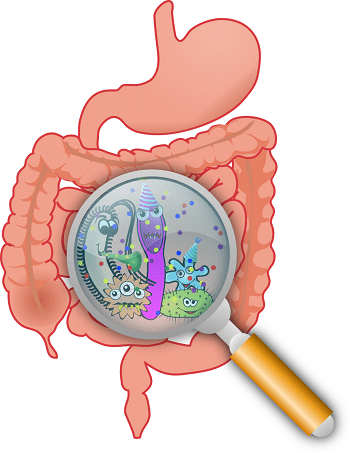
Vsi smo kdaj v življenju doživeli napihnjenost, a če postane trdovratna, obstaja možnost, da obstaja osnovni vzrok. Če ste opazili, da imate težave z oblečenjem kratkih hlač, ko ste jih pred le nekaj dnevi brez težav nosili, potem morda niste krivi za to, da »preskočite v telovadnico«.
Napihnjenost se preprosto pojavi, ko je naš vnos hrane/zraka preveč in se naše telo tega ne znebi pravilno. Če pa se napenjanje nenadoma začne brez očitnega razloga (že nekaj časa niste jedli) in se pojavi ob prisotnosti bolečine ali krvi v blatu, je to lahko opozorilni znak, da je čas za obisk gastroenterologa.
Takšen znak bi lahko pomenil, da se je začel razvoj celiakije, GERB (gastroezofagealne refluksne bolezni), IBS (sindrom razdražljivega črevesja), zaprtja ali žolčnih kamnov.
V vsakem primeru, ko prepoznate kri v blatu ali nenormalno ostre bolečine v predelu trebuha pri odvajanju plinov ali odvajanju črevesja, potem morate zagotovo dobiti diagnozo in zdravljenje pri zdravniku GI.
Eden od opozorilnih znakov, ki bi ga moral diagnosticirati zdravnik GI, je nenadna, nepričakovana in nepojasnjena izguba teže. Čeprav bi lahko nenadno hujšanje pripisali različnim drugim zdravstvenim težavam, je običajno najboljše mesto za iskanje korenine težave prebavni sistem.
Dr. Tarugu, certificiran gastroenterolog na južni Floridi z več kot 2.100 uspešno zaključenimi postopki je izjavil, da je "prve težave, ki jih želite izolirati kot vzrok za nenadno hujšanje, rak na želodcu, trebušni slinavki ali debelem črevesu".
Če doživite nenadno hujšanje, se posvetujte z gastroenterologom, da boste lahko prepričani, da ne gre za rakavo obolenje ali Chronovo/celiakijo (kar bi zmanjšalo zmožnost vašega telesa za absorpcijo vitalnih hranil).
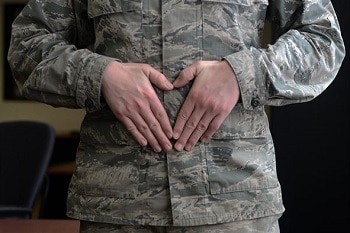
Med odvajanjem bi bilo verjetno nekoliko zaskrbljujoče, če bi opazili nekaj rdečkastih sledi na toaletnem papirju, saj vsi vemo, da krvavitev iz takega predela ni normalna. Krvavitev iz predela rektuma je lahko znak potencialno nevarnega stanja, zato jo je treba diagnosticirati in zdraviti "takoj".
Čeprav je možno, da krvavitev povzročajo hemoroidi, bo v nasprotnem primeru nujno poiskati gastroenterologa, še posebej, če se krvavitev ponavlja in če so osebe starejše od 40 let.
Prebavne motnje (medicinsko imenovane tudi "dispepsija") je izraz, ki opisuje stanje, ki vključuje več različnih simptomov, ki se pojavijo med zaužitjem obroka. Nekateri od teh simptomov lahko vključujejo tudi občutek »nasičenosti«, ko končate z obrokom, poleg »bolečine« ali »pekočega občutka« v zgornjem predelu trebuha.
Prebavne motnje so precej pogosto stanje med odraslimi srednjimi in starejšimi, pojavljajo se mesečno, tedensko ali celo dnevno.
Če opazite katerega od naslednjih simptomov, je za preprečevanje zapletov nujno poiskati nasvet in zdravljenje pri zdravniku GI:
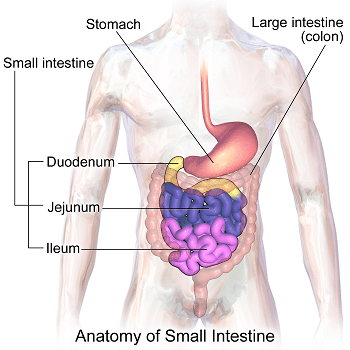
When visiting your GI doctor a treatment/recovery plan will be formulated based upon the diagnostic results.
Possible treatment suggestions may include:
Keep in mind that indigestion and heartburn are two different conditions with each having their own unique symptoms.
However, if you’re experiencing the symptoms of both then it’s possible that you’re suffering from both of the two. Regardless, whether the agitation is minor or severe it’s important that you take such a warning signal seriously and seek treatment from a GI doctor that will help to diagnose and remedy the condition(s).
Nausea is quite an unpleasant experience and can use intense feeling of dizziness, minor to severe discomfort and paint in the abdominal area. On the other hand, often times accompanies by nausea, vomiting is the occurrence of a contraction from the stomach that during times of nausea can help one feel a bit better as the content of stomach is during vomiting is the process in which it’s propelled up thru the esophagus.
Intense and consistent vomiting could possibly be a warning sign of a Gastroenteritis which can be treated by a gastroenterologist. Gastroenteritis is known to be a viral infection that causes inflammation within the digestive tract and can be treated thru the use of medication(s) which will be recommended by the gastroenterologist that you choose to visit.
Are you experiencing a dullish pain in the stomach, weight loss, the undesired to intake food due to pain or nausea/vomiting? If so, this could be a sign of a minor yet serious matter. Such warning signs could possibly mean that you’re suffering from a Peptic Ulcer which can be diagnosed by a gastroenterologist thru the use of an upper GI series or an endoscopy.
If you’re experiencing upper abdominal pains (one of the biggest signs of a stomach ulcer ) be sure that you seek the diagnosis/treatment from a GI doctor so you can have it treated while preventing the possibly of further complications arising from the condition.
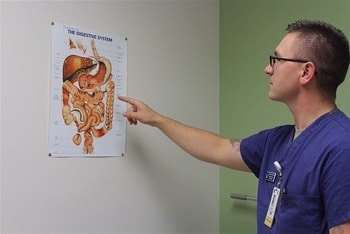
Individuals that may have GI disorders can suffer from warnings signs that are both painless and pain-induced. Such symptoms can be diarrhea/constipation (in some cases, irritable bowel syndrome). Such signs, whether they’re painful or not, could possibly be a sign of a condition other then IBS known as “centrally mediated abdominal pain syndrome” (or “CAPS” for short) which used to be medically referred to as “functional abdominal pain syndrome” (FAPS).
CAPS is a gastrointestinal disorder and is typically caused by a change in the nerve impulse sensitivity and will cause intense and frequent pain in the abdominal section which for some individuals will be quite severe.
In some cases, pain can be so intense and persistent that it’ll affect you in the similar way as the pain from a tooth ache as it can consume your focus/life since it has a tendency to “not go away” for extended periods of time. If such warning signs are present, seek counsel from a gastroenterologist where an antidepressant may be prescribed to not only reduce anxiety caused by the pain but to help alleviate the pain all together.
If you’re experiencing the feelings of belching, bloating or flatulence (build-up of gas in the alimentary canal), these could be warning signs that you you could possibly be suffering from a number of different conditions including allergies to certain foods, lactase deficiency, peptic ulcer disease or a H. Pylori Infection. Each of these we’ll cover below more in-depth so you can determine the possible cause(s) of your symptom(s).
Food Allergies – While not typical, the most severe allergic reaction that one can inherit from the ingestion of food is known as “anaphylaxis” which could possibly be life-threatening. Studies have shown that 90% of all allergies related to foods are caused from the ingestion of soy, wheat, shellfish, tree nuts, fish, peanuts, milk and eggs. If pain tends to arise after consuming such food items then this may be a signal that you need to seek the treatment of a gastroenterologist.
Lactase Deficiency – While lactase deficiency is pretty common with an estimated 3 million cases per year alone within the US, it’s an issue that’s brought upon individuals whose body has difficulty with digesting the sugar contents within dairy products. These issues arise in the digestive tract and can be treated by a GI doctor thru the use of recommended off-the-shelf medication(s) or by a prescribed medication (depending on the severity of your condition.
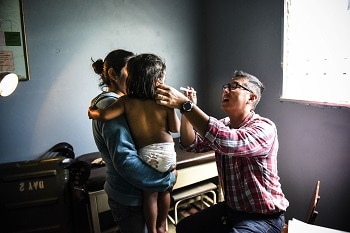
Individuals suffering from “Lactase Deficiency” can expect such warning signs to arise within 30 minutes to 2 hours from the consumption of milk or other food items containing dairy.
While symptoms aren’t always noticeable there are some warning signs that if arise should prompt you to see a gastroenterologist.
If you experience persistent and severe abdominal pain, have difficulty with swallowing or have bloody/black vomit that has the appearance of coffee grounds then seek diagnosis from a GI doctor for treatment as these are all warning signs that need attention before complications arise.
If you experience a yellowing of the eyes/skin then it’s very well possible that this is the warning sign that Jaundice is occurring. Jaundice is a condition in which there’s an excessive amount of bilirubin in the blood which is known, medically, as hyperbilirubinemia.
Bilirubin is a “yellow pigment” substance that affects the color pigmentation in the white of your eyes and your skin tone.
If you’re experiencing such signs of this condition schedule an appointment to see a GI doctor as quickly as possible as if not, further complications could develop which could lead to:
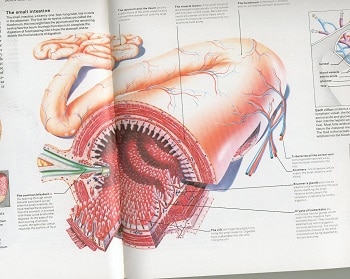
One warning signing of a possibly serious complication that should be diagnosed immediately is pain experienced in the abdominal section with the occurring pain spreading/radiating to your back. Such a feeling is a strong indicator and warning sign of “gallstone pancreatitis ”.
Gallstones are a pretty common cause of pancreatitis and this is caused by gallstones that develop in the gallbladder to block the bile duct which puts a stop to the pancreatic enzymes from being able to travel to your small intestine (which forces them to return to the pancreas).
During this process, these pancreatic enzymes will agitate the pancreas cells which will cause inflammation which can cause a great deal of pain that will radiate from the abdomen to the back. In some cases, this feeling of pain will also be accompanied by a tingling, prickly sensation. If such warning signs arise, seek attention from a physician or preferably a gastroenterologist who will help to diagnose the issue so proper treatment can be prepared/prescribed.
In the event that the gastroenterologist determines that your pancreatitis us due to the gallstones then an ECRP (Endoscopic Retrograde Cholangiopancreatography) will be performed which is a procedure conducted by the GI doctor to remove the stones.
For heavier/obese women it’s important to take cautious note of any pain that stems from the upper right-hand side of the abdominal sections as such a pain could be the indicator of “gallstone pancreatitis” (a prominent condition for heavier-set women). What’s causing such pain is the process of the gallstones blocking the bile duct which causes a chain reaction as this will stop any/all pancreatic enzymes from traveling to the small intestine providing the enzymes with no choice but to return to the pancreas. If the gallstones travel from the gallbladder to the common bile duct, gallstone pancreatitis can develop which is a condition that can continue to worsen and mature in pain while also leading to further complications if not treated.
If you’re medically considered to be “obese” and have had such pain on a regular or consistent basis, consult a GI doctor as treatment in the form of medication and surgeries are available (depending on the severity of the condition). Only making 1-2 bowel movements per week? Difficulty with going? Pain during defecating?
There are a few signs to look out for and notate when looking for signs of possible gastrointestinal complications. A few of these signs include difficulties with making bowel movements, only making 1-2 bowel movements per week or if you experience pain during defecating. Constipation is considered to be present whenever an individual is making only 1-2 bowel movements per week so if this persists this alone could be a warning sign of “anal fissure”. With an estimated 200,000 cases per year within the US alone, anal fissure is a condition that refers to the tearing in the lining of the anus which can cause an immense amount of pain during all three scenarios we referred above (making bowel movements and pain during throwing-up).
Anal fissures develop throughout the specialized tissues that line both the anus and anal canal and this is called the “anoderm”. The reason this can be (and more than likely “will be”) so painful is because of the over-abundance of nerves located within the anal canal. Diagnosis and treatment from a gastroenterologist is recommended. Typically, diagnosis of this condition can be determined by the physical inspection of area with either medication or surgery being recommended to treat (depending on the severity of the anal fissure).
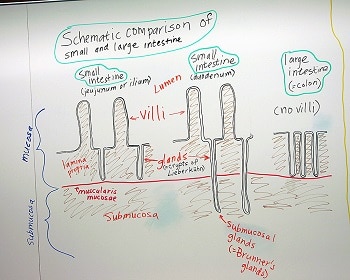
If you’re experiencing symptoms of a condition that includes intense and regular fevers, nausea/vomiting and diarrhea then notate these warning signs to show a gastroenterologist as these are signs of a possibly serious condition known as “bacterial gastroenteritis” which will need to be treated to prevent complications that could arise.
Bacterial gastroenteritis is a condition that develops and occurs whenever bacteria infiltrates your gut can and initiates an infection. If this occurs, inflammation will develop both in your stomach and intestines which will cause discomfort to say the least. Typical symptoms of “bacterial gastroenteritis” includes severe, extreme and persistent cramps in the abdominal area in addition to diarrhea/
While viruses are responsible for the majority of gastrointestinal infections bacterial infections are nearly just as common. A majority of people refer to bacteria-initiated infections as “food poisoning”.
There are a few different causes of “bacterial gastroenteritis” which can be poor hygiene habits, coming in close contact with pets or animals or from consuming foods/fluids that are contaminated with bacteria (even air-borne bacteria). If such warning signs arise, seek medical attention from a physician or preferably a gastroenterologist so the issue(s) can be properly treated to above any further development of bacterial growth.
First and foremost, any sign(s) of rectal bleeding is “not normal” and should never, in any scenario, be dismissed as a minor or non-severe matter as it’s a serious occurrence that requires the attention and treatment from a gastroenterologist.
One of the most prominent signs and symptoms of “irritable bowel syndrome” (IBS) is rectal bleeding and the presence of blood in the stool. In some circumstances, a warning sign is not making a bowel movement at all or only 1-2 times per week.
Blood expressed from the body caused IBD will appear to be “bright red” while if blood is originating from the upper area of the digestive tract the blood will be darker (dark/black stools). If such a sign has arisen be sure that you notate the darkness of the blood so you can provide this detail to a gastroenterologist who will use this information as a part of the diagnosis and treatment(s). In any case, if bleeding from the rectum is “severe” or if you’re throwing-up blood than this is a sign of a severe condition occurring which needs medical attention “immediately”.
Furthermore, such signs could also be a warning sign that you’re suffering from either “Crohn’s disease” or “ulcerative colitis” which are also conditions that you’ll want to have inspected by a GI doctor. Chron’s disease is a condition affecting 200,000 individuals per year and is a chronic, inflammatory irritable bowel disease that runs alone the digestive tract lining.
Ulcerative colitis is another chronic disease that inflames the bowel area which results in the digestive tract becoming inflamed. If any of the warning signs above are occurring, seek medical attention. You don’t want to take the chance of such conditions maturing in growth/size as not only could further complications arise but you may have to undergo additional treatments which otherwise could’ve been avoided had you have the condition(s) treated early on.
Experience vague or minor abdominal pain with a change in bowel movements last for 3+ months? Any changes in your normal bowel movement habits that are lasting for 3+ months is a sign that your body is changing, or, is changing due to an irregular occurrence/condition that should be looked at by a GI doctor; especially when you’re experiencing changes in bowel movement that are lasting for an extended period of time.
Irritable Bowel Syndrome (IBS) is a condition that can spark a significant amount of pain to its victims and will initiate a discomforting agitation feeling in the abdominal area. There are some very common symptoms of having IBS which include constipation, gas and diarrhea (in addition to a pain-induced belly). Having your IBS diagnosed for the severity will help you to have a planned pain-management regiment that will be created for you by the gastroenterologist.
When your stomach is experiencing pain it’s caused from the constipation or the diarrhea although is the painful feeling(s) diminish upon making a bowel movements then more than likely, your symptom(s) are an indicator of your pain being tied to a condition other than IBS (consult a GI doctor for diagnosis). This pain is initiated by contractions which can and will cause intolerable pain that will consume your life, make it difficult to rest and will make it difficult to focus on aspects of life (work for example).
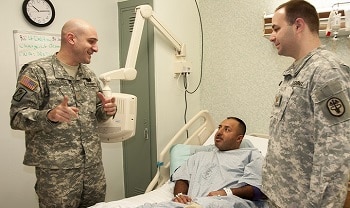
When it comes to your health it’s never a smart idea to over-look symptoms of possible health-related complications and rectal pain, bleeding from the rectum or the presence of blood in your stool are warning signs of a possibly serious complication. If you’re experiencing any of these signs, there’s a possibility that you body is suffering from one or more conditions that include it hemorrhoids, anal fissure, or anorectal cancer (although this is rare).
Hemorrhoids is a condition that should be treated by a GI doctor as Hemorrhoids is a medical condition that means the veins in the rectum and anus have become “swollen” which can cause the veins to bulge which will then result in severe agitation especially during bowel movements. Swollen hemorrhoids may be referred to by your gastroenterologist as “piles” as this is a commonly used medical term for this particular condition.
Hemorrhoids , depending on the severity of you case(if it’s determined by the GI doctor that you in-fact have it), you may undergo an operational procedure where the gastroenterologist will make use of specially designed medical equipment (not that intrusive) to “shrink” and “remove” the hemorrhoids which could actually be done on-site at the GI doctor’s office. Another treatment option is the GI doctor administering an injection in to the hemorrhoid with a specially formulated solution that will result in scarring the hemorrhoid to close it off.
Anal fissure is another condition that could be occurring if bleeding from the rectum is prevalent as this condition is the occurrence of “tearing” in the anus lining which will cause blood to originate out of the rectum which can be noticeable by looking at the stool (is blood noticeable?).
Finally, bleeding from the rectum can “possibly” be a sign of “anorectal cancer ” although this is quite uncommon and not the typical cause of bleeding from the rectal region. “Anorectal cancer” is a malignant infested disease that forms within the tissues and glands of the anus. If you’re suffering with HPV (human papillomaviurs) will increase the chances of “rectum cancer development” so it’s vitally important that you seek diagnosis is warning signs such as rectal bleeding occur.
For elderly/older women, experiencing a bulge or in the rectal area (comparable to a stomach bulge) is a serious sign of either “rectal prolapse” or “vaginal prolapse”; serious yet treatable conditions that can be cured by a gastroenterologist thru the practice of medication(s) or procedural operations.
In the United States it’s estimated that 10% of all elderly women suffer from rectal prolapse with signs ranging from rectal bleeding to the feeling of a “bulge” in the rectal region (noticeable to the touch). Rectal prolapse, specifically, is a condition in which the parts of the large intestine will protrude out of the anus and will cause quite a bit of discomfort, pain, difficulty with making a bowel movement and rectal bleeding.
If such signs occer, don’t procrasitance on receiving treatment. Consult with a GI doctors so treatment preparation(s) can be facilitated.
Vaginal prolapse is another condition that rectal bleeding can be a warning sign of. Vaginal prolapse is a serious condition where the bladder, rectum, urethra, small bowel or uterus will begin to fall out place.
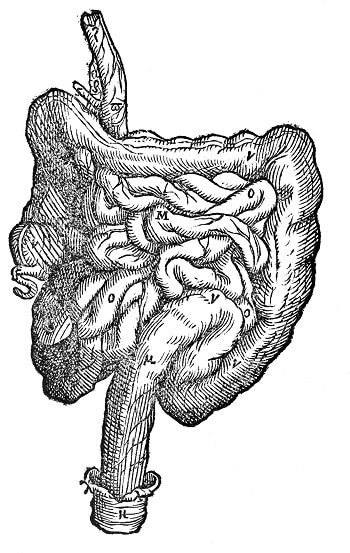
If any of these warning signs occur, it’s time to visit a gastroenterologist so you can receive an accurate diagnosis and treatment.
When it comes to your overall health, maintaining your normal body functions and avoiding complications a gastroenterologist can is a great go-to medical professional as you’ll be able to take advantage of the specialized training that the GI doctors has received so you can alleviate yourself of medical complications.
If any of this signs on this list has occurred, don’t hesitate to seek the intervention of a GI doctor. It’s paramount to ensuring the longevity of your health and will provide you with the peace-of-mind knowing that your symptoms are being affectively diagnosed and of course, treated.
We hope you found this guide helpful. Your gastrointestinal health is important to us and it’s our sincere mission to provide useful medical advice and suggestions.
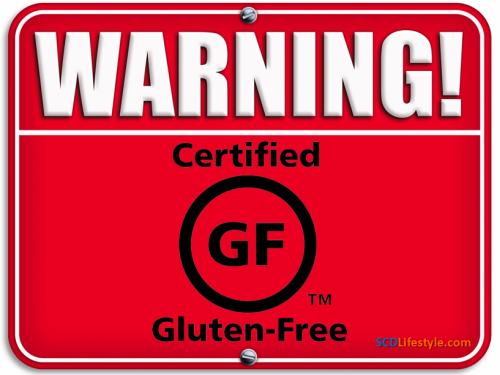 Zdravna moda brez glutena v vrednosti 12 milijard dolarjev
Ko so mi leta 2007 postavili diagnozo celiakije, nisem vedela, kaj je hrana brez glutena. Še nikoli nisem slišal zanj in zagotovo nisem vedel, kje bi ga kupil. Toda v tistem času je bila prodaja hran
Zdravna moda brez glutena v vrednosti 12 milijard dolarjev
Ko so mi leta 2007 postavili diagnozo celiakije, nisem vedela, kaj je hrana brez glutena. Še nikoli nisem slišal zanj in zagotovo nisem vedel, kje bi ga kupil. Toda v tistem času je bila prodaja hran
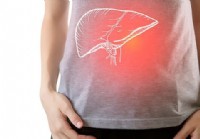 Ali je hepatitis nalezljiv?
Kaj je hepatitis A? Hepatitis A je okužba, ki lahko povzroči odpoved jeter in smrt. Hepatitis A je vrsta okužbe jeter, ki jo povzroča virus, imenovan hepatitis A (HAV). Zaradi jasnosti se bo boleze
Ali je hepatitis nalezljiv?
Kaj je hepatitis A? Hepatitis A je okužba, ki lahko povzroči odpoved jeter in smrt. Hepatitis A je vrsta okužbe jeter, ki jo povzroča virus, imenovan hepatitis A (HAV). Zaradi jasnosti se bo boleze
 Kakšna je razlika med blatom in zaprtjem?
Kaj je zaprtje in blato? Zaprtje in blato sta si podobna, saj je blato huda oblika zaprtja. Pogovor o črevesju je lahko neroden pogovor. Ko pa gre za diagnosticiranje zapletov pri odvajanju črev
Kakšna je razlika med blatom in zaprtjem?
Kaj je zaprtje in blato? Zaprtje in blato sta si podobna, saj je blato huda oblika zaprtja. Pogovor o črevesju je lahko neroden pogovor. Ko pa gre za diagnosticiranje zapletov pri odvajanju črev